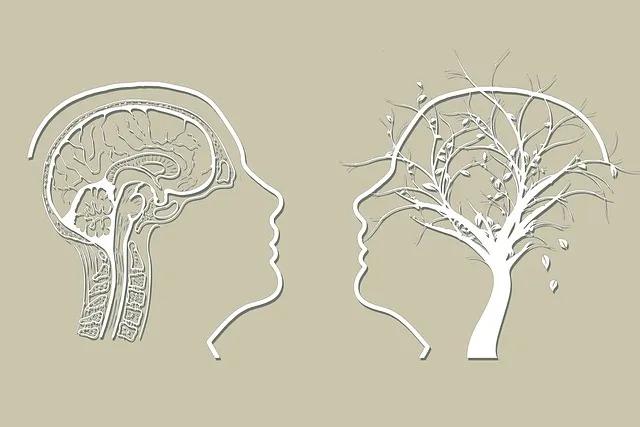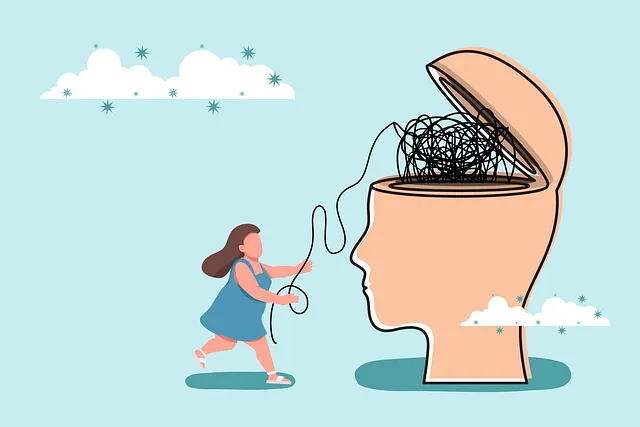The Kaiser Permanente mental health center in Lafayette provides vital crisis intervention services, employing trained professionals who offer multi-faceted support. They conduct thorough risk assessments, utilize de-escalation techniques, and create personalized safety plans tailored to each patient's unique psychological, social, and environmental factors. Immediate response strategies include coordination with local networks and resources, while short-term interventions focus on stabilization through activities like active listening, art therapy, and meditation. Long-term recovery involves sustained support from community centers, offering counseling, therapy, trauma services, and depression prevention programs to promote overall emotional well-being in Lafayette.
“At the Kaiser Permanente Mental Health Center Lafayette, crisis intervention strategies are vital for effectively managing and mitigating acute emotional or psychological situations. This comprehensive guide offers a structured approach to understanding, assessing, and addressing crises. From identifying risk factors specific to the center’s environment to providing immediate response strategies and long-term recovery planning, each section equips mental health professionals with essential tools. By implementing these evidence-based practices, the Lafayette community can ensure better patient outcomes and foster resilience.”
- Understanding Crisis Intervention: A Brief Overview for Kaiser Permanente Mental Health Center Lafayette
- Assessing the Situation: Identifying Signs and Risk Factors at the Center
- Immediate Response Strategies: How to Act Quickly and Effectively
- Short-term Support and Stabilization Techniques for Patients
- Post-Crisis Care: Long-term Guidance and Recovery Planning for Lafayette Community
Understanding Crisis Intervention: A Brief Overview for Kaiser Permanente Mental Health Center Lafayette

At Kaiser Permanente Mental Health Center Lafayette, crisis intervention is a critical component of patient care. It involves immediate and effective responses to individuals experiencing acute mental health crises. These situations can range from severe emotional distress to suicidal ideation or behavior. Understanding crisis intervention requires a multifaceted approach that combines assessment, de-escalation techniques, and collaborative problem-solving.
Mental health professionals at our center are trained in risk assessment to identify potential hazards and develop safety plans tailored to each patient’s unique needs. Enhancing self-esteem and emotional intelligence plays a pivotal role in these interventions. By fostering a sense of security and empowering individuals to manage their emotions, we aim to support long-term mental well-being. Crisis intervention strategies are not one-size-fits-all; they must be adaptable and tailored to address the complex interplay of psychological, social, and environmental factors contributing to a crisis.
Assessing the Situation: Identifying Signs and Risk Factors at the Center

When addressing a crisis at a Kaiser Permanente mental health center like Lafayette, the first step is to meticulously assess the situation. This involves identifying signs that may indicate an individual’s risk factors for mental health crises. Key indicators can range from dramatic changes in behavior or mood to specific triggers such as recent life stressors, chronic conditions, or substance abuse. Professionals at these centers are trained to recognize subtle cues and conduct thorough evaluations to understand the underlying causes.
By focusing on both visible signs and hidden risk factors, mental wellness coaching programs can be effectively developed and tailored. For instance, if a patient exhibits increased anxiety and social withdrawal, it might suggest a need for stress reduction methods and self-care practices. This proactive approach ensures that interventions are not just reactive but also preventive, ultimately contributing to the long-term mental wellness of individuals seeking support at Kaiser Permanente Lafayette or similar facilities.
Immediate Response Strategies: How to Act Quickly and Effectively

In situations where individuals are experiencing a crisis, whether it’s a mental health emergency or an acute issue, swift and effective action can make all the difference. The first step for anyone involved in crisis intervention is to remain calm and assess the situation. At the Kaiser Permanente mental health center Lafayette, immediate response strategies are tailored to address these critical moments. This involves quickly identifying the person’s needs and determining the level of care required.
Implementing a Community Outreach Program can be a powerful tool during such times. By fostering connections with local support networks, community resources, and mental health professionals, the Kaiser Permanente Lafayette team can coordinate effective interventions. This might include on-site support, transportation to specialized facilities, or linking individuals to ongoing therapy and depression prevention programs. Additionally, Mental Illness Stigma Reduction Efforts play a pivotal role in encouraging open dialogue and ensuring individuals receive the care they need without fear of judgment.
Short-term Support and Stabilization Techniques for Patients

In times of crisis, immediate support and stabilization are vital to helping patients navigate through traumatic or stressful situations. At the Kaiser Permanente mental health center in Lafayette, short-term interventions play a crucial role in fostering resilience. These techniques often involve creating a safe and supportive environment where individuals can express their emotions freely without judgment. One effective method is active listening, where healthcare providers pay close attention to patients’ concerns, validating their feelings and offering non-judgmental empathy. This simple yet powerful approach helps in reducing anxiety and promotes open communication.
Additionally, the center incorporates structured activities like art therapy or guided meditation sessions tailored for crisis intervention. These activities provide an outlet for emotions, allowing patients to engage in a therapeutic process that can offer immediate relief. Moreover, the Stress Management Workshops Organization offers valuable resources through workshops focused on resilience building, empowering individuals with coping strategies to manage acute stress and prevent future crises. Such initiatives ensure that patients receive holistic care tailored to their unique needs.
Post-Crisis Care: Long-term Guidance and Recovery Planning for Lafayette Community

After an immediate crisis intervention, the long-term well-being and recovery of the Lafayette community is a key focus. The Kaiser Permanente mental health center in Lafayette plays a pivotal role in this process by providing sustained support and care tailored to individual needs. This includes comprehensive services such as counseling, therapy, and group support sessions aimed at helping individuals navigate the emotional healing processes and prevent potential relapses or new episodes of distress.
The community’s recovery planning should encompass various aspects, including access to Trauma Support Services, strategies for Depression Prevention, and fostering a network of peers and professionals who can offer continuous guidance. By implementing these measures, Lafayette can ensure that residents not only survive but thrive after a crisis, creating a resilient and supportive environment that promotes emotional healing on a community-wide scale.
The Kaiser Permanente Mental Health Center Lafayette has a comprehensive crisis intervention strategy, addressing immediate needs while also focusing on long-term recovery. By understanding risk factors, assessing situations swiftly, and implementing effective response techniques, the center provides crucial support to patients and the Lafayette community. This multi-faceted approach ensures that individuals facing crises receive holistic care, fostering resilience and promoting a brighter future for all.






